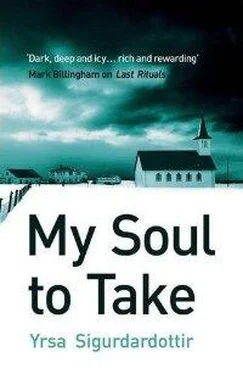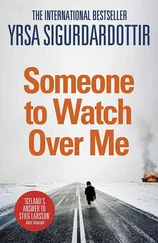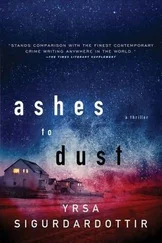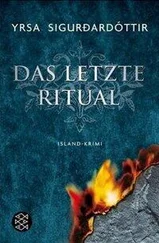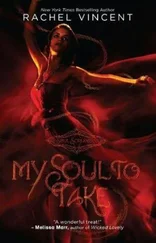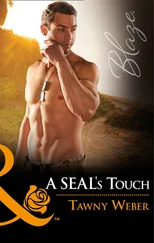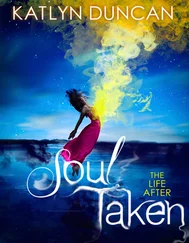“My friend here is from Germany, and he saw a brooch in the window that aroused his curiosity,” Thóra replied. “Could we take a look at it?”
Nodding assent, the old man inched past the bric-a-brac toward the window. “Ah, yes, this has been with me a long time, I can tell you,” he said as he reached for it. “Actually it’s a medal, not a brooch.” He turned and put it down on the counter. “A decoration for those wounded in battle.”
“Oh,” said Thóra, picking it up. As she had thought, it was carved with a helmet and two swords, but now she noticed a little swastika on the helmet. A laurel wreath ran around the edge of the medal. “So it was awarded to soldiers who were wounded in the war? Aren’t there a lot of these in circulation?”
The old man frowned reproachfully, and Thóra regretted her comment. Presumably he now thought she was about to start haggling. He took the medal out of her hands. “A lot of them were awarded, yes. At the height of wartime, it was also given to civilians who were injured in air raids. What makes this one remarkable is that it’s made of silver. There were three different ranks, awarded in accordance with the seriousness of the soldier’s injuries. Regular, silver, and gold. The regular rank was often granted for being wounded in combat. It was by far the most common.”
“How badly did you have to be injured to get the silver one?” asked Thóra.
“There were various grounds for winning the silver, including losing a limb or minor brain damage.” He lifted up the medal and allowed the weak sunlight to play across it. “It wasn’t a medal people particularly coveted, I can tell you that.”
“Not to mention the gold,” offered Thóra. “I don’t think I want to know what you had to sustain to deserve one of those.” She smiled at him. “My friend’s sure to be interested in buying it. Do you know any thing about its background?”
The old man smiled back. “No, unfortunately. I got it from the estate of someone who died several decades ago, along with some other personal effects. There was no information about how it ended up there.”
“I thought it might have belonged to an Icelander,” Thóra said. “That would be interesting.”
“Not as far as I know,” the old man said. “It’s possible, but I doubt it. I think it was awarded exclusively to Germans, especially when it came to civilians.”
“But didn’t some Icelanders fight on the German side? Could one of them have earned the medal?” suggested Thóra, who was trying to steer the conversation toward Nazis on Snæfellsnes.
“Very few, I think. A couple of nutcases joined the Germans in Norway and Denmark, but I don’t think any of them ever set foot on a battlefield.” The man placed the medal on the counter. “The Icelanders who went for that sort of stuff at the time were no heroes. Bunch of idiots. I think they were mainly attracted by the uniforms.”
“Really?” said Thóra. “I must admit I know absolutely nothing about the situation in Iceland. So there was a Nazi movement here?”
“Oh, yes,” said the shopkeeper. “They were nationalists, mainly teenage boys who enjoyed marching with flags and fighting the socialists. I think they were driven more by youthful energy than any political leanings.”
“Was the movement widespread here on Snæfellsnes?” Thóra asked innocently.
He scratched his head. Thóra noticed that his hair was unusually thick for such an old man, even though it had turned white. “Happily, it never got a foothold here,” he said, looking at Thóra with pale, watery eyes. “There was one man on the south coast near here who tried to spread the word and recruit, but he fell ill before he made any progress. The local boys he managed to convert to nationalism soon lost interest after he dropped out of the picture, so nothing ever came of it.”
Thóra could have cheered, but she kept her voice light and disinterested. “Yes, of course. Wasn’t it Grímur Thórólfsson, the farmer from Kreppa?” she said, crossing her fingers and praying she was right. If it had been Börkur and Elín’s grandfather, that would explain the Nazi paraphernalia she had found in the box.
The old man squinted at Thóra suspiciously. “I thought you said you didn’t know anything about it,” he said. “You’re not far off, considering.”
“I only know the family,” Thóra mumbled evasively. “I don’t know anything about the nationalist movement.” She turned to Matthew and shot him a conspiratorial wink the old man couldn’t see. “Well, aren’t you going to buy the brooch?”
“Medal,” he corrected her as he pulled out his wallet. “How much does it cost?”
The shopkeeper named his price, and judging from Matthew’s expression, it was no bargain. He paid in silence, then turned to Thóra while the man was wrapping it up and asked, “When’s your birthday? I’ve got the present.”
Thóra poked out her tongue, then turned to the old man to take the wrapped medal. “Thank you,” she said, and they threaded their way toward the door. There, she turned around, determined to ask who the nationalist farmer was, but she didn’t need to say a word.
The old man was still standing behind the counter, resting his hands on it. He stared long and hard at Thóra, then spoke before she could get the question out. “It was Bjarni,” he said, slowly and deliberately. “Grímur’s brother. Bjarni Thórólfsson, from Kirkjustétt.”
“Bjarni sounds like a pleasant chap,” Matthew said, putting the medal on the table between them. “Abuses his daughter and spreads Nazi propaganda.” He turned the medal so that the helmet and swords pointed away from Thóra. “I think this’ll look great on you.”
Thóra pushed it away. “What’s wrong with you?” she said. “I’d never wear that. It’s bound to bring bad luck, and it might make people think I’m mentally impaired.” She gestured at the plate in front of Matthew. “Eat up—it’s not often I take a man out to lunch.” They were sitting in a little restaurant, where Thóra was treating Matthew as compensation for what he’d had to buy. “It goes toward the medal, remember?”
She loaded her fork with pasta and put it in her mouth. After swallowing, she said, “But I still don’t have a clue whether this has anything to do with Birna. I’m really in the same position as before.”
“I’d have to say that the swastika you mentioned being sketched in her notepad isn’t very much to go on.”
“No, maybe not,” Thóra replied. “I just have a hunch that it’s all connected.”
“Sometimes hunches are worth paying attention to,” said Matthew, “but unfortunately not always.” He sipped his water. “It would be best if you could support this hunch of yours with actual arguments. Preferably logical ones.”
Thóra poked at her pasta with her fork. She looked up, pleased. “Do you know what I should do?”
“Um, I don’t know, forget all about this and leave the investigation to the police?” said Matthew hopefully.
“No,” Thóra retorted. “I just need to get on the Internet, and
also study Birna’s diary a little more closely. I didn’t read it properly because I felt guilty. I may well have overlooked something.” She clinked her glass of lemonade against Matthew’s water. “Let’s drink to that.”
Thóra sat in reception at the computer that provided Internet access for guests. She had a laptop in her room, where there was supposed to be a wireless connection, but after ten fruitless attempts to connect she had given up and dragged Matthew out with her. “This must be him: ‘Grímur Thórólfsson, born in Stykkishólmur in 1890, died in Reykjavík in 1957.’ ” She was browsing Reykjavík cemetery records on the Internet and had found Grímur’s name. Clicking it, she read from the screen: “ ‘Fossvogur Cemetery. Plot H-36-0077.’ ” She looked triumphantly at Matthew.
Читать дальше
